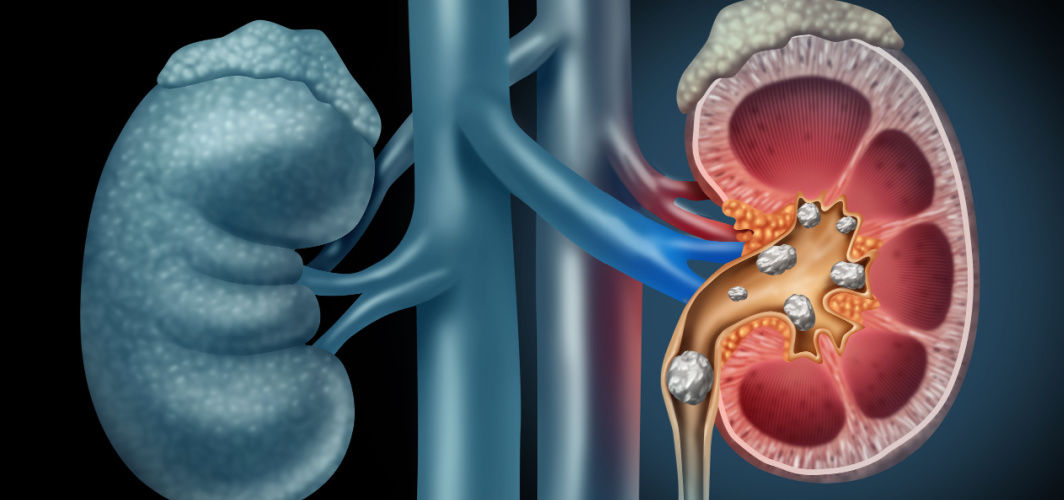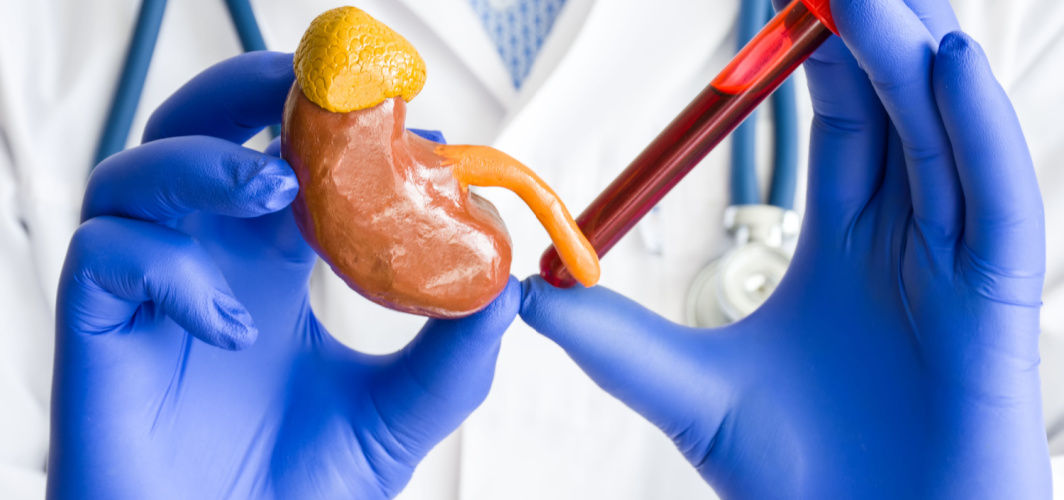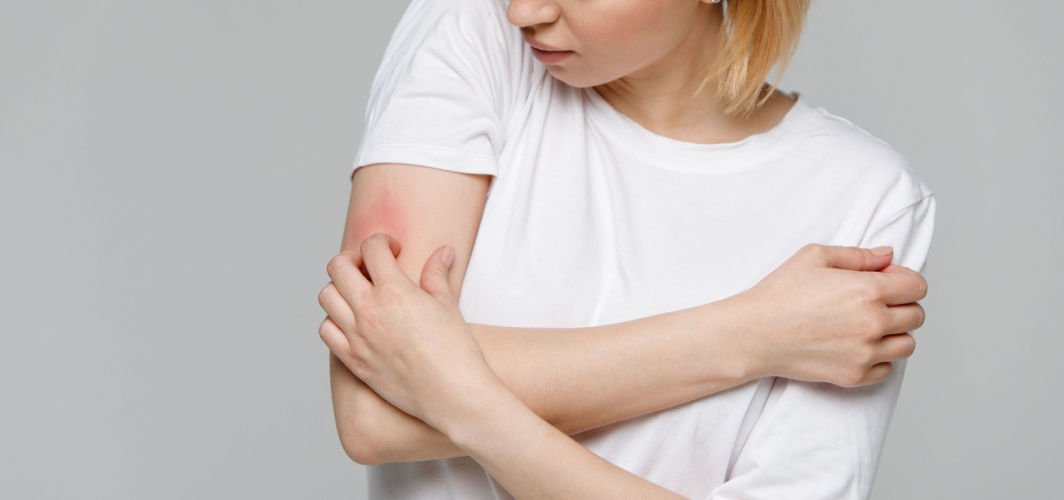General Health
7 Diet Tips to Prevent Kidney Stones
6 min read
Published on - 13 October 2023, Updated on - 14 October 2023
Share this article
0
1 like

Maintaining a healthy diet plays a crucial role in preventing kidney stones. By making smart food choices, you can reduce your risk of developing these painful stones. It's important to be aware of the foods to avoid with kidney stones, those that can contribute to kidney stone formation, and those that can help prevent them. In this blog, we will explore seven essential kidney stones diet tips to prevent kidney stones. These tips will guide you towards making healthier dietary choices and reducing your risk of kidney stone formation. By incorporating these dietary changes into your lifestyle, you can take proactive steps to safeguard your kidney health.
Diet Tips to Prevent Kidney Stones
Kidney stones are hard deposits that form in the kidneys when there is an imbalance in the urine's concentration of minerals and salts. They can cause severe pain and discomfort, affecting millions of people worldwide.
In India, the prevalence of kidney stones is alarmingly high, with an estimated 12% of the population affected. Here are some diet tips to prevent kidney stones:
1. Stay Hydrated
Staying hydrated is crucial in preventing kidney stones. Drinking an adequate amount of water helps dilute the urine and reduces the concentration of stone-forming substances. It also promotes regular flushing of the urinary tract, preventing the formation of crystals that can lead to kidney stones.
The recommended daily water intake varies depending on factors like age, sex, and activity levels, but a general guideline is to aim for at least 8-10 glasses (2-2.5 litres) of water per day. It is important to spread your water consumption throughout the day rather than drinking large amounts at once.
To increase your water intake, carry a water bottle with you wherever you go. This serves as a reminder to drink water regularly. You can also infuse your water with lemon or mint for added flavour, making it more enjoyable to drink.
2. Reduce Sodium Intake
High sodium levels in the diet can contribute to the formation of kidney stones. Excessive sodium intake can increase the amount of calcium in the urine, leading to the formation of calcium-based kidney stones. Processed foods that cause kidney stones often contain high amounts of sodium. They include:
- Canned soups
- Sauces
- Snacks
Additionally, adding table salt to meals can significantly increase your sodium intake. To reduce sodium intake, start by reading food labels and choosing low-sodium options. Look for foods labelled "low-sodium" or "no added salt." Cooking meals from scratch allows you to control the amount of sodium in your food. Opt for fresh ingredients and use herbs and spices to add flavour instead of relying on salt.
3. Increase Calcium Intake
Calcium plays a crucial role in preventing kidney stones. It may seem counterintuitive, but consuming adequate amounts of dietary calcium can reduce the risk of developing kidney stones. However, it is important to differentiate between dietary calcium and calcium supplements. Good food sources of calcium include:
- Low-fat dairy products such as milk, yoghurt, and cheese
- Leafy vegetables good for kidney stones include spinach and kale
- Tofu for a plant-based diet
The daily recommended intake of calcium varies based on age and gender. For most adults, including men and women above 50 years of age, the recommended daily intake is 1000-1200 mg. Men aged 19-50 need around 1000 mg per day, while women aged 19-50 require slightly more at 1100 mg per day.
4. Choose Oxalate-Rich Foods Wisely
Oxalate plays a significant role in the formation of calcium oxalate kidney stones, one of the most common types of kidney stones. When oxalate levels are high in the urine, it binds with calcium to form crystals that can lead to stone formation. To prevent kidney stones, it is essential to choose foods that cause kidney stones wisely. Some high oxalate foods that should be consumed in moderation include:
- Spinach
- Beets
- Chocolate
- Nuts and seeds
Instead, consider incorporating low-oxalate alternatives into your diet. Some foods to avoid with kidney stones include strawberry, blueberry, and raspberry since these are very rich in oxalates.
It is important to include foods like apples, cucumbers, and white rice that are lower in oxalates in your kidney stones diet. These options provide essential nutrients without significantly increasing the risk of stone formation.
5. Add Citrus Fruits to Your Diet
Citrus fruits can play a crucial role in preventing the formation of kidney stones, thanks to their high citrate content. Citrate is known to inhibit the formation of certain types of kidney stones by binding with calcium, preventing it from crystallising and forming stones. Including specific citrus fruits in your diet can provide you with a good dose of citrate. They include:
- Oranges
- Lemons
- Grapefruits
To incorporate these fruits into your daily diet, there are several creative ways you can try. Squeezing lemon juice into your water is a refreshing way to increase your citrate intake. Additionally, you can enjoy a glass of freshly squeezed orange juice as part of your breakfast routine.
6. Maintain a Healthy Weight
Maintaining a healthy weight is crucial in preventing kidney stones. Obesity has been linked to an increased risk of developing kidney stones. When you carry excess weight, your body produces more urine acids that can lead to stone formation.
For weight management and reduction of the risk of kidney stones, it is important to follow a balanced diet, avoid foods that cause kidney stones, and engage in regular physical activity. Start by focusing on portion control, as consuming large amounts of food can overload your kidneys and contribute to stone formation. Practise mindful eating, paying attention to hunger and fullness cues, and avoiding emotional eating.
Incorporating regular exercise into your daily routine is also vital. Aim for at least 30 minutes of moderate-intensity exercise, such as brisk walking or cycling, most days of the week. Exercise helps maintain a healthy weight, improves digestion, and reduces the risk of stone formation.
7. Limit Animal Protein
Excessive consumption of animal protein can significantly increase the risk of developing kidney stones, especially uric acid stones. When we consume too much animal protein, it leads to an increase in the excretion of calcium, uric acid, and oxalate in the urine, all of which contribute to stone formation.
To reduce the risk, consider incorporating alternative sources of protein into your kidney stones diet, such as:
- Legumes like lentils, chickpeas, and kidney beans
- Tofu and other soy-based products
- Low-fat dairy products like milk, yoghurt, and cheese
It is also recommended to include more plant-based meals in your diet and limit the consumption of red meat and processed meats, as they are often high in purines and can increase the excretion of uric acid in the urine.
Conclusion
In conclusion, we've explored seven important kidney stones diet tips to prevent kidney stones and maintain optimal kidney health. By following these diet tips and making healthy choices, you can lower your risk of developing kidney stones and promote overall well-being. Remember to consult with a healthcare professional or a registered dietitian for personalised advice based on your specific needs and medical history. Prioritise your health by adopting a kidney stone-prevention diet today!
General Health
Consult Top Nephrologists
View AllFrequently Asked Questions
Which foods should I avoid if I have kidney stones?
Which foods should I avoid if I have kidney stones?
Are there any vegetables that are good for preventing kidney stones?
Are there any vegetables that are good for preventing kidney stones?
Can drinking plenty of water help prevent kidney stones?
Can drinking plenty of water help prevent kidney stones?
Can diet play a role in preventing kidney stones?
Can diet play a role in preventing kidney stones?
Can certain food habits contribute to the formation of kidney stones?
Can certain food habits contribute to the formation of kidney stones?
Leave Comment
Recommended for you

General Health
Tests to Determine Kidney Function
Learn about kidney tests, including their importance, types, and what the results mean. Stay informed about the latest guidelines and technologies to maintain optimal kidney health.

General Health
How To Make Your Gym Sessions Effective? Quit These 5 Bad Habits Now
If you work out every day and are still way too far from achieving your fitness goals, then you must be doing something wrong. Certain habits can make your exercise sessions less productive than you expect.

General Health
The Impact of Allergy on Your Health
Know the impact of allergies on your health and learn about the latest guidelines, technologies, and lifestyle factors. Find out how to manage allergies and improve your quality of life.
Subscribe
Sign up for our free Health Library Daily Newsletter
Get doctor-approved health tips, news, and more.
Visual Stories

Science-backed Home Remedies for Burns and Blisters
Tap to continue exploring
Recommended for you

General Health
Tests to Determine Kidney Function
Learn about kidney tests, including their importance, types, and what the results mean. Stay informed about the latest guidelines and technologies to maintain optimal kidney health.

General Health
How To Make Your Gym Sessions Effective? Quit These 5 Bad Habits Now
If you work out every day and are still way too far from achieving your fitness goals, then you must be doing something wrong. Certain habits can make your exercise sessions less productive than you expect.

General Health
The Impact of Allergy on Your Health
Know the impact of allergies on your health and learn about the latest guidelines, technologies, and lifestyle factors. Find out how to manage allergies and improve your quality of life.